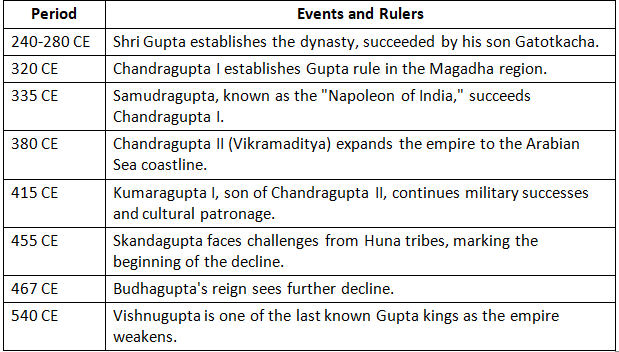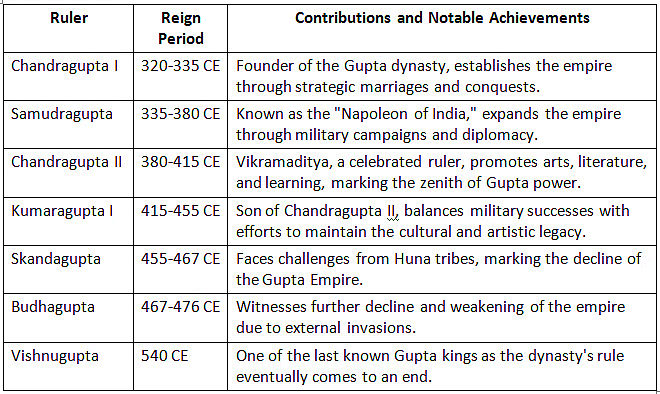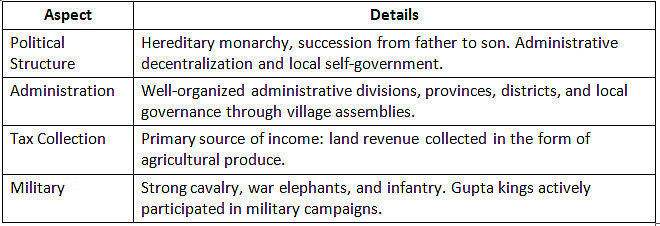Cheat Sheet: The Gupta Empire | History for UPSC CSE PDF Download
Introduction
The Gupta Empire, spanning from approximately 320 to 550 CE, marked a significant period in Indian history often referred to as the "Golden Age." Known for political stability, administrative efficiency, and patronage of the arts and sciences, the empire witnessed remarkable achievements in literature, art, science, and governance. This chronology document explores the founding and expansion of the Gupta Empire, its rulers, political structure, administration, military, the golden age of cultural achievements, and the eventual decline leading to its fragmentation.
Founding and Expansion of the Gupta Empire

Rulers of the Gupta Empire

Political Structure, Administration, and Military

Golden Age: Literature, Art, Philosophy, and Science
Religion, Education, and Cultural Exchange

Decline of the Gupta Empire

Conclusion
The Gupta Empire, often regarded as the "Golden Age" of India, witnessed remarkable achievements in various fields. From political stability and efficient administration to the flourishing of literature, art, philosophy, and science, the Gupta period left an indelible mark on Indian history. Despite facing challenges and decline in later years, the cultural and intellectual legacy of the Gupta Empire continued to influence subsequent empires, contributing to the enduring richness of Indian society.
|
113 videos|550 docs|173 tests
|
FAQs on Cheat Sheet: The Gupta Empire - History for UPSC CSE
| 1. What was the significance of the Gupta Empire? |  |
| 2. Who was the founder of the Gupta Empire? |  |
| 3. What were the major achievements of the Gupta Empire? |  |
| 4. How did the Gupta Empire contribute to the growth of Indian culture? |  |
| 5. What was the decline of the Gupta Empire attributed to? |  |






















